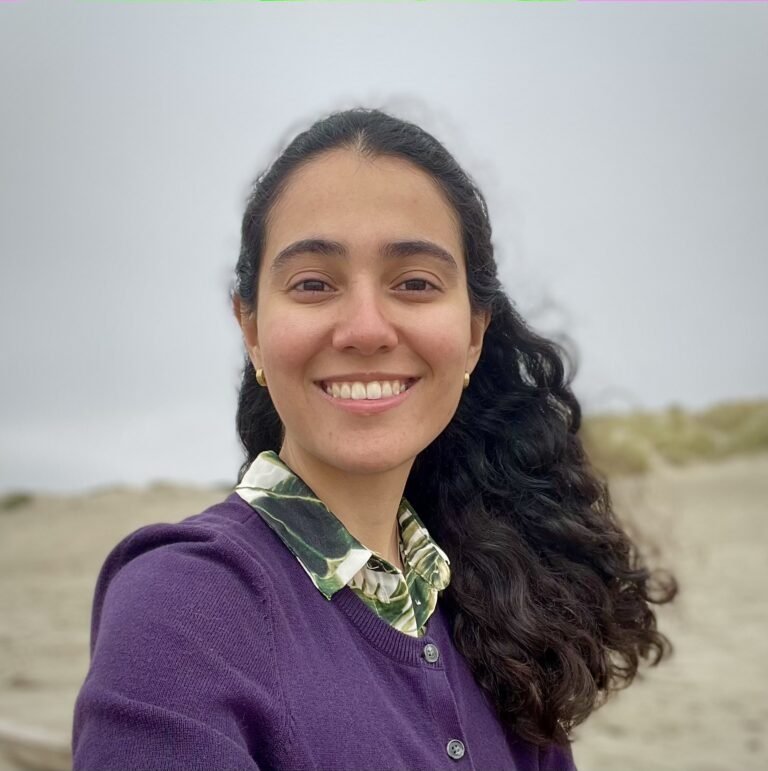Note: The review and poems associated with this post majorly focus on author Ayse Guvenilir
Our Ancestors Did Not Breathe This Air is an anthology written by six Muslim women and it is about how they view culture, identity, womanhood, and so much more. Afeefah Khazi-Syed, Aleena Shabbir, Ayse Guvenilir, Maisha M. Prome, Mariam Dogar, and Marwa Abdulhai are a dynamic group of women of various backgrounds who met as undergrads at MIT. Not only do they share a love of STEM, but they also have a passion for poetry. Aside from their studies, they spent their days discussing their shared love of the art form and that love proved to be strong as even COVID-19 couldn’t deter them from continuing what they dub their “grounding medium.”
The poems “when i think sunshine” and “comb through from root to end” are written by Ayse Guvenilir. Ayse Guvenilir was born in Austin, Texas to a Venezuelan mother and a Turkish father. When I read her poems, I found them to be relatable and very interactive, which added to the experience of her serene and powerful writing. On their website, Ayse says that she sees poetry as, “a form of writing that can surpass the bounds of what words are expected to be.” I truly believe readers will find that sentiment in her entries as well as in the poems of Afeefah, Aleena, Maisha, Mariam, and Marwa.
Reading “when i think sunshine” felt like I was reading about almost every memory I have of enjoying the summertime when I was a kid. Remembering those feelings of running around with my siblings and many cousins, enjoying the hot weather, and feeling like stress didn’t even exist during summer. With being written in haibun, a combination of prose and haiku, there was that added emphasis on those endless summer days that always ended as quickly as they started. Ayse perfectly captured that with the haiku at the conclusion, which only further showcases her strong writing style.
I found “comb through from root to end” to be another powerful entry, not just because of the message but also because of its format. Some lines are written to the left, some to the right, with the last few lines placed in the middle. It felt like I was moving my head back and forth between a conversation of people giving their perceived notions of a person, how they think someone should present themselves based on their identity (or identities), and almost making that person feel less than in terms of who they are. When the format ended in the middle, it felt like a powerful stop to the side comments. Like going in the middle and forging your own path in terms of who you are and who you want to be.
There are many other entries that are uniquely written in terms of format and various poetry styles, making them incredibly immersive. What’s also noteworthy about this collection is that some of the poems come with notes containing extra information, personal and not, about the entry. The additional knowledge makes them even more captivating because readers get to see the inspiration behind the story.
Our Ancestors Did Not Breathe This Air has many poems written by Ayse and her fellow co-authors that are incredibly immersive, captivating, and beautiful to read. They are multi-layered and there is always something to take away from their writing. It is a wonderful collection that contains their experiences and explorations into the many facets of their identity.
Enough
Ayse Guvenilir
I have never been where
I will never go stuck
in this house with a heavy ceiling
reaching for the truth of what
I was trying to do
with you when I said
that I had to go
book the next flight out
would they ever trust me
a gringa—as Abuela dutifully reminds me—
otherwise?
Not that
given the current state of affairs
they would ever trust anyone
outside of whom could fix
every one of their problems bringing
them light
in the middle of the night
it’s so hot
they can hear
their brain sweating feel
their sense slipping waiting
hours upon hours for gas shifts switching
in a car that is going to burn
anyways
the ground beneath my feet has never
felt more unstable than it feels right now
kids in CAGES the world AVOIDING
the humanitarian CRISIS—
like they avoid every crisis—
does anyone hear their cries into the echo
of the storage building
is it real? Does it matter?
How can I be
and not be saving
my home once-removed y
gente who I feel are my gente
bonded by lengua y risas y cultura
rooted in over exaggerations y bendiciones y
Dios te cuide y no te amo te adoro y
seemingly excessive abrazos y besos
that keep us whole.
Will I ever be enough
to save them all?
Enough: The two crises referenced are the immigration deportation and detainment along the border in the United States, and the continued political and economic hardships faced by many in Venezuela.
Excerpted from “Our Ancestors Did Not Breathe This Air: A Collection of Poems,” used with permission from Beltway Editions. (c) Ayse Guvenilir.
Ayse Angela Guvenilir was born in Austin into a family with a Turkish father, a Venezuelan mother, and three older brothers. Growing up in Texas, France, and various parts of upstate New York, Ayse has always used reading and writing for connection, reflection, and relaxation as she moved from place to place. She sees poetry in particular as a form of writing that can surpass the bounds of what words are expected to be, in turn connecting her with others. Ayse got her bachelor’s degree in biological engineering with a minor in creative writing from MIT and is currently a master’s student in the Biomechatronics Group at the MIT Media Lab. Through her work, Ayse aims to empathize, educate, and inspire, the way that the works of others have always done for her.
Melissa Gonzalez (she/her) is a UCLA graduate with a major in American Literature & Culture and a minor in Chicana/o & Central American Studies. She loves boba, horror movies, and reading. You can spot her in the fiction, horror/mystery/thriller, and young adult sections of bookstores. Though she is short, she feels as tall as her TBR pile. You can find Melissa on her book Instagram: @floralchapters









